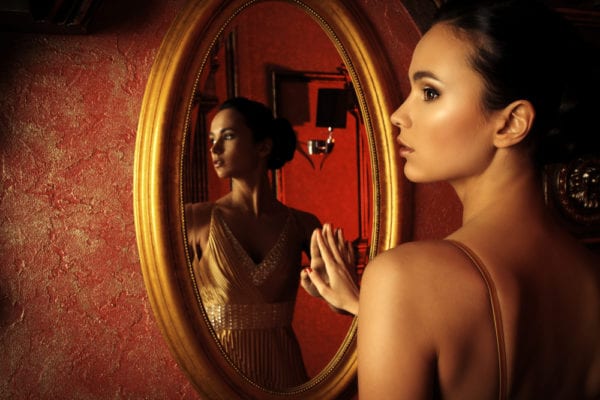‘She’ fell in love: On writing romance in the third person
‘She’ fell in love: On writing romance in the third person
‘She’ fell in love: On writing romance in the third person
-
Hannah
-
Hannah


One of the most fundamental choices a novelist faces before setting pen to paper is whether to narrate the book in the first or third person.
Here is a paragraph from my latest novel, Aphrodite’s Tears:
Could she really do this job? She wanted it so badly. Her own Roman wreck, what archaeologist wouldn’t welcome this opportunity? But she was fearful too. She intuited the iron control, the strange pleasure Damian took in her discomfiture, and she quailed at the thought of what her total subjugation might bring. If she were to let her guard down, what then? Damian was different in so many ways to the man she had met all those years ago and there was indeed a cruel edge to him now. Yet he was drawn to her, that she could tell. He had hired her, after all. But she sensed in every bone of her body that his fascination was something to be afraid of, to avoid if she valued her peace of mind, her career … her own self.
This is told in the third person; Oriel did this, she did that. The omniscient narrator of the story (me, in a sense) is telling you what happens to Oriel, looking down on the story from above.
Now, here is the same paragraph, rewritten in the first person:
Could I really do this job? I wanted it so badly. My own Roman wreck, what archaeologist wouldn’t welcome this opportunity? But I was fearful too. I intuited the iron control, the strange pleasure Damian took in my discomfiture, and I quailed at the thought of what my total subjugation might bring. If I were to let my guard down, what then? Damian was different in so many ways to the man I had met all those years ago and there was indeed a cruel edge to him now. Yet he was drawn to me, that I could tell. He had hired me, after all. But I sensed in every bone of my body that his fascination was something to be afraid of, to avoid if I valued my peace of mind, my career … my own self.
In this paragraph, the narrator is Oriel; we are entirely glued to her perspective on events.
When you compare the two paragraphs, what strikes you? I imagine you notice that the second one creates more of an intimacy with Oriel, because we see the story through her eyes. Sometimes, a writer wants to create this intimacy between the reader and hero(ine); but doing so can be problematic, because it can be suffocating for the reader, who is trapped in the protagonist’s mind, and it can limit the storytelling to just the one perspective.
I have always written my romance stories in the third person. First and foremost, this is the mode of storytelling that comes most naturally to me. The third-person narrative is as old as time. Think of the oldest texts of civilizations; of generation after generation sitting before the fire telling stories; of all the fairy-tales told at children’s bedsides – once upon a time… We tell stories about other people as a way to share knowledge and to inspire; we tell stories in the third person. This was how I first experienced storytelling, and this is how I naturally tell a story.
There is more to the decision to write in the third person, however – to write that she falls in love, rather than I fall in love.
As narrator, I am free to write in my own style – my narrative voice, if you like. Take a look at the extract rewritten into the first person; it doesn’t quite work, because my voice is inherent in the writing when it ought to be Oriel’s voice that speaks throughout. Imagine having to write as a different narrator each time I write a novel; to step inside a different heroine each time. I want to tell love stories, not be in them personally. Although as Goethe said, ‘Every author in some way portrays himself in his works’, and there is something of me in my heroine, she is not me; a distance between us makes for more liberated writing.
Were I to write in the first person, I would feel restrained, encumbered. I love the flexibility of the third-person narrative. I am not glued to the heroine; I can bring in the hero’s point of view as well. It’s important to me that he should have a voice, a perspective on the love story – and it helps the reader to see the heroine from another angle. It also allows me to follow the hero to different locations and show his interaction with characters other than the heroine, enabling me to paint the world of my romantic protagonists as vividly as possible.
Friedrich Nietzsche said, ‘There are no facts, only interpretations.’ A third-person narrative is wide open to interpretation. Ultimately, I believe that makes for an engaging novel in which the reader can watch the scene alongside the narrator, in keeping with the age-old tradition of storytelling.